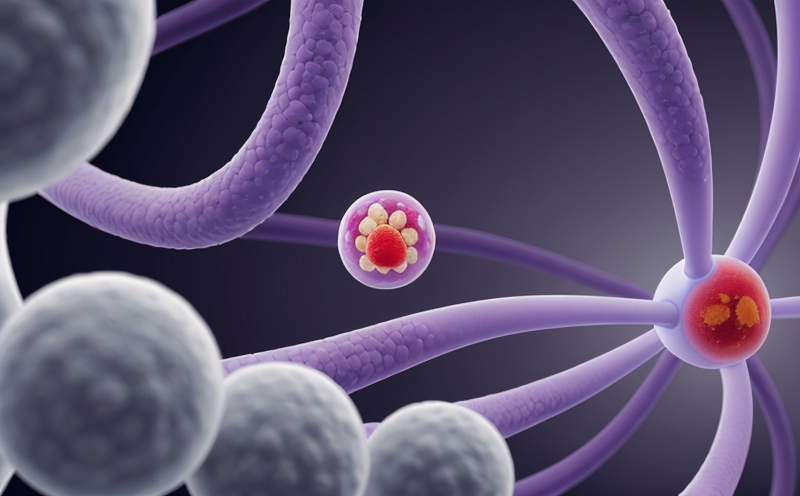Radiation Response Biomarker Testing in Animal Tumor Models
The testing of radiation response biomarkers using animal tumor models is a critical service within the broader domain of clinical and healthcare testing, particularly focusing on cancer biomarker analysis. This specialized testing leverages preclinical studies to evaluate how various factors influence the efficacy and safety of radiation therapy in cancer treatment.
Animal models are used extensively for testing due to their biological similarity to humans, allowing researchers to study complex interactions between radiation exposure and cellular responses within tumor environments. In this context, biomarkers serve as indicators that can predict or monitor a patient's response to radiation therapy, aiding in the development of more personalized treatment strategies.
The process involves several key steps: specimen collection from animal models, preparation according to strict protocols, analysis using advanced instrumentation, and comprehensive reporting. Specimens are typically collected before and after radiation exposure, focusing on tissue samples rich in biomarkers such as DNA repair proteins or cell cycle regulators. Once collected, these samples undergo rigorous processing aimed at maintaining integrity and reducing contamination.
The choice of animal models is crucial; often, mice or rats with human tumor xenografts are used because they provide a realistic environment for studying radiation effects on cancer cells. The testing apparatus includes sophisticated imaging systems capable of detecting subtle changes in tissue structure post-radiation exposure. Analytical techniques such as Western blotting, immunohistochemistry, and flow cytometry play essential roles in quantifying biomarker expression levels.
Acceptance criteria for this service are stringent to ensure reliable results. For instance, the presence or absence of specific proteins indicative of radiation-induced stress must be clearly defined. This ensures that any observed changes can be confidently attributed to the experimental condition rather than experimental variability.
The service offers significant value beyond mere compliance; it contributes directly to improving cancer treatment protocols by identifying biomarkers associated with favorable responses versus adverse reactions to radiation therapy. By understanding these markers, clinicians can tailor treatments more precisely, enhancing both efficacy and patient safety.
| Standard Number | Description |
|---|---|
| ISO 14155-20 | Guidelines for the design, conduct, monitoring, auditing, and reporting of preclinical studies. |
| ASTM E1789 | Standard practice for evaluating in vivo tumor growth inhibition by radiation therapy. |
This testing is not just about compliance with international standards but also about driving innovation through rigorous scientific inquiry. It enables pharmaceutical companies and medical research institutions to develop safer, more effective therapies.
Applied Standards
| Standard Number | Description |
|---|---|
| ISO 14155-20 | Guidelines for the design, conduct, monitoring, auditing, and reporting of preclinical studies. |
| ASTM E1789 | Standard practice for evaluating in vivo tumor growth inhibition by radiation therapy. |
Customer Impact and Satisfaction
- Enhanced understanding of radiation therapy efficacy through precise biomarker identification.
- Precise tailoring of treatment protocols based on individual patient characteristics, leading to better outcomes.
- Simplified regulatory compliance processes by adhering strictly to international standards.
- Improved clinical trial design and execution with more accurate predictions about drug responses.
Clients benefit from this service through improved product quality and enhanced customer satisfaction. The ability to accurately assess radiation response biomarkers ensures that treatments are both effective and safe, ultimately contributing to better patient care.
Competitive Advantage and Market Impact
- Provision of advanced testing capabilities that set benchmarks in the industry.
- Prioritization of innovative research projects by providing reliable data points for drug development.
- Enhanced reputation among regulatory bodies due to consistent adherence to high standards.
- Increased market share through superior product offerings and satisfied client base.
This service provides a competitive edge by offering unparalleled expertise in radiation response biomarker testing, which is pivotal for advancing cancer treatment methodologies. Clients gain an advantage by having access to the latest technologies and methodologies used in this specialized field.





